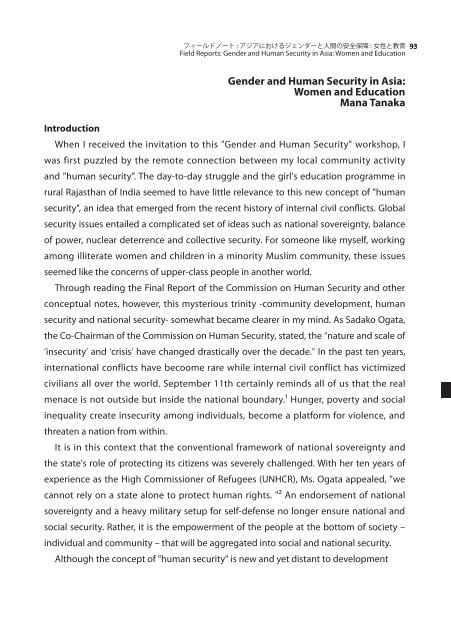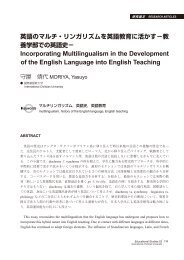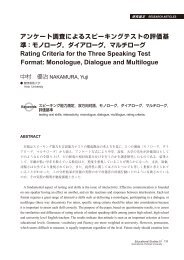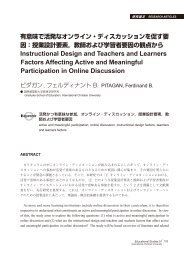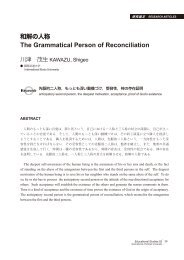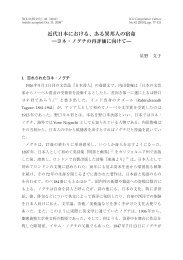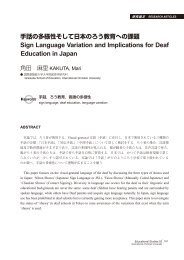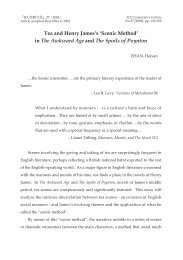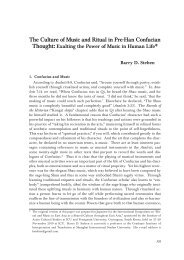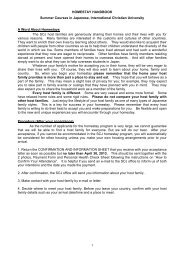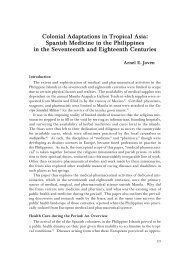Untitled - subsite - å½éåºç£æ大å¦
Untitled - subsite - å½éåºç£æ大å¦
Untitled - subsite - å½éåºç£æ大å¦
Create successful ePaper yourself
Turn your PDF publications into a flip-book with our unique Google optimized e-Paper software.
: : <br />
Field Reports: Gender and Human Security in Asia: Women and Education 93<br />
Introduction<br />
Gender and Human Security in Asia:<br />
Women and Education<br />
Mana Tanaka<br />
When I received the invitation to this "Gender and Human Security" workshop, I<br />
was first puzzled by the remote connection between my local community activity<br />
and "human security". The day-to-day struggle and the girl's education programme in<br />
rural Rajasthan of India seemed to have little relevance to this new concept of "human<br />
security", an idea that emerged from the recent history of internal civil conflicts. Global<br />
security issues entailed a complicated set of ideas such as national sovereignty, balance<br />
of power, nuclear deterrence and collective security. For someone like myself, working<br />
among illiterate women and children in a minority Muslim community, these issues<br />
seemed like the concerns of upper-class people in another world.<br />
Through reading the Final Report of the Commission on Human Security and other<br />
conceptual notes, however, this mysterious trinity -community development, human<br />
security and national security- somewhat became clearer in my mind. As Sadako Ogata,<br />
the Co-Chairman of the Commission on Human Security, stated, the nature and scale of<br />
insecurity and crisis have changed drastically over the decade. In the past ten years,<br />
international conflicts have becoome rare while internal civil conflict has victimized<br />
civilians all over the world. September 11th certainly reminds all of us that the real<br />
menace is not outside but inside the national boundary.¹ Hunger, poverty and social<br />
inequality create insecurity among individuals, become a platform for violence, and<br />
threaten a nation from within.<br />
It is in this context that the conventional framework of national sovereignty and<br />
the state's role of protecting its citizens was severely challenged. With her ten years of<br />
experience as the High Commissioner of Refugees (UNHCR), Ms. Ogata appealed, "we<br />
cannot rely on a state alone to protect human rights. "² An endorsement of national<br />
sovereignty and a heavy military setup for self-defense no longer ensure national and<br />
social security. Rather, it is the empowerment of the people at the bottom of society –<br />
individual and community – that will be aggregated into social and national security.<br />
Although the concept of "human security" is new and yet distant to development


